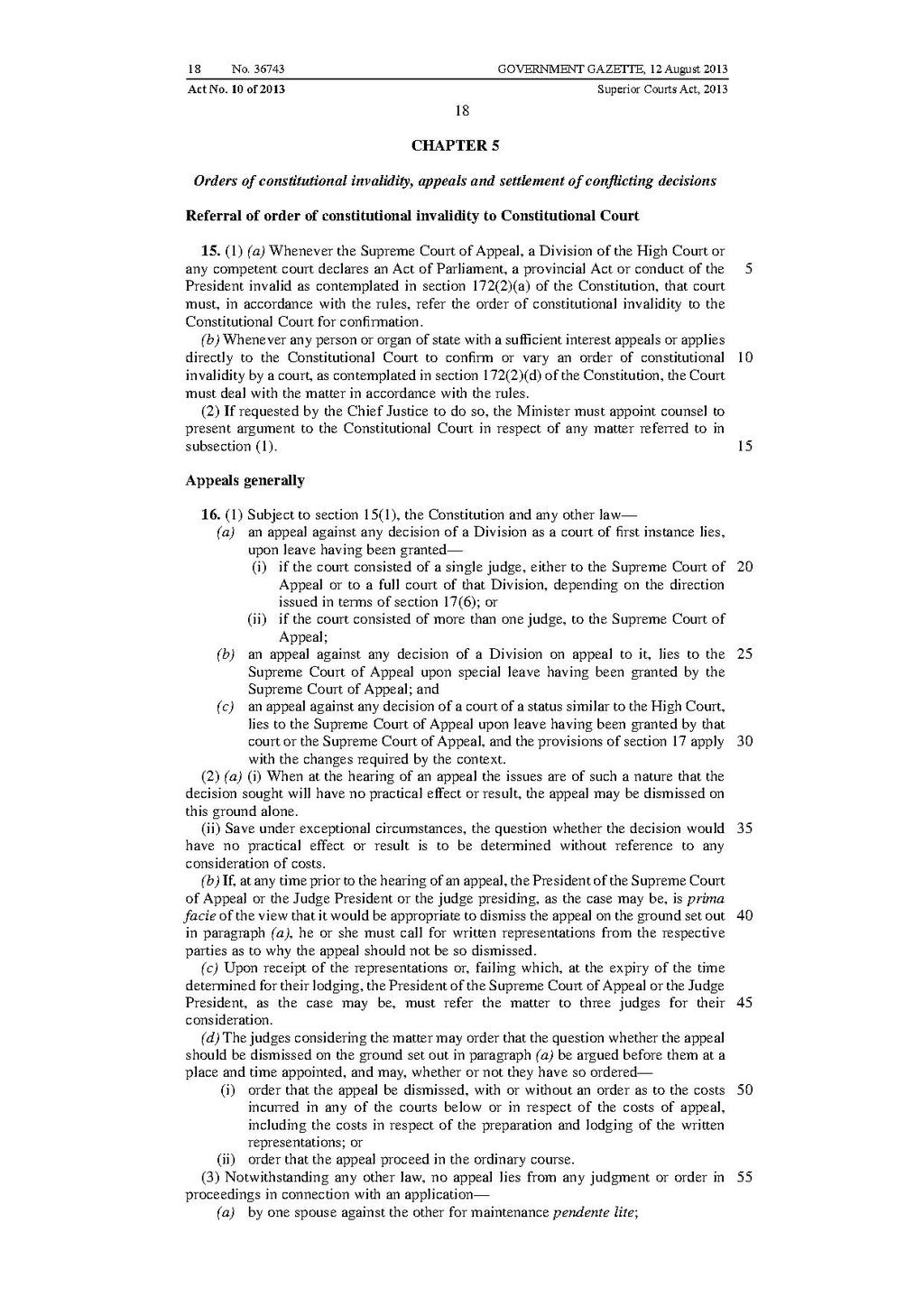18
Chapter 5
Orders of constitutional invalidity, appeals and settlement of conflicting decisions
Referral of order of constitutional invalidity to Constitutional Court
15. (1) (a) Whenever the Supreme Court of Appeal, a Division of the High Court or any competent court declares an Act of Parliament, a provincial Act or conduct of the President invalid as contemplated in section 172(2)(a) of the Constitution, that court must, in accordance with the rules, refer the order of constitutional invalidity to the Constitutional Court for confirmation.
(b) Whenever any person or organ of state with a sufficient interest appeals or applies directly to the Constitutional Court to confirm or vary an order of constitutional invalidity by a court, as contemplated in section 172(2)(d) of the Constitution, the Court must deal with the matter in accordance with the rules.
(2) If requested by the Chief Justice to do so, the Minister must appoint counsel to present argument to the Constitutional Court in respect of any matter referred to in subsection (1).
Appeals generally
16. (1) Subject to section 15(1), the Constitution and any other law—
(2) (a) (i) When at the hearing of an appeal the issues are of such a nature that the decision sought will have no practical effect or result, the appeal may be dismissed on this ground alone.
(ii) Save under exceptional circumstances, the question whether the decision would have no practical effect or result is to be determined without reference to any consideration of costs.
(b) If, at any time prior to the hearing of an appeal, the President of the Supreme Court of Appeal or the Judge President or the judge presiding, as the case may be, is prima facie of the view that it would be appropriate to dismiss the appeal on the ground set out in paragraph (a), he or she must call for written representations from the respective parties as to why the appeal should not be so dismissed.
(c) Upon receipt of the representations or, failing which, at the expiry of the time determined for their lodging, the President of the Supreme Court of Appeal or the Judge President, as the case may be, must refer the matter to three judges for their consideration.
(d) The judges considering the matter may order that the question whether the appeal should be dismissed on the ground set out in paragraph (a) be argued before them at a place and time appointed, and may, whether or not they have so ordered—
(3) Notwithstanding any other law, no appeal lies from any judgment or order in proceedings in connection with an application—
